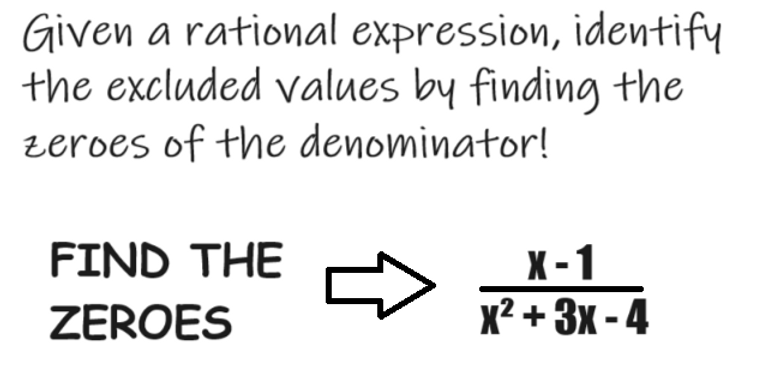
What do you mean finding zeroes?
Finding the zeroes of the denominator of a rational fraction involves determining the values of the variable (usually denoted as x) for which the denominator of the fraction becomes zero.
These values are important because they represent the points where the fraction may become undefined or have vertical asymptotes.
Let us find some zeroes!
If we want to find the values for x which the denominator is equal to zero, let us set the denominator equal to zero, and then find what satisfies the equation to be true.
So, we have:
0 = x² + 3x -4
The first thing we need to consider is if we can separate this equation into an ( x + A ) * ( x - B ) or any combination of the -/+ signs for different situations.
I believe I can separate this into ( x - 1 ) * ( x + 4 )
I know this just mentally considering what I can multiply to get -4, and then can I add them to make +3. Since it is small numbers, we can do this in our heads after practice.
So we know then that:
4 * -1 = -4
4 + (-1) = +3
Which then leads us to:
( x + 1 ) * ( x - 4 ) = x² + 3x -4
Now that we have simplified our equation, what values of x will result in 0?
x - 1 = 0
x + 4 = 0
These two become true at either x = 1 or else x = -4!
So, the zeroes on our denominator are [-4,1]



ALWAYS DOUBLE CHECK INTERNET SOURCES
